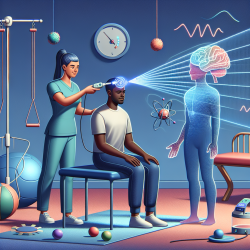Introduction
In the realm of pediatric medicine, the theories of intelligence and mindset play a pivotal role in shaping medical professionals' learning and error reporting behaviors. The research article titled A survey of mindset theories of intelligence and medical error self-reporting among pediatric housestaff and faculty offers valuable insights into how these mindsets influence clinical practice. By understanding and implementing the outcomes of this research, practitioners can improve their skills and foster better outcomes for their patients.
The Power of Mindset
Carol Dweck's Mindset Theory categorizes individuals into two groups: those with a "fixed" mindset, who believe intelligence is immutable, and those with a "growth" mindset, who believe intelligence can be developed through effort and feedback. This distinction is crucial in medical education, where continuous learning and adaptation are vital.
The study revealed that pediatric physicians are equally divided between fixed and growth mindsets, mirroring the general population. This finding highlights the need for targeted interventions to encourage a growth mindset, which is associated with better learning outcomes and resilience in the face of challenges.
Implications for Medical Error Reporting
Medical error reporting is a critical component of clinical practice, contributing to patient safety and professional development. The study found no significant correlation between mindset and error reporting rates, suggesting that both fixed and growth mindset individuals report errors at similar rates. However, the potential for mindset training to enhance error reporting and learning from feedback remains promising.
Adopting a growth mindset can encourage practitioners to view errors as opportunities for growth rather than threats to their competence. This shift in perspective can lead to more open discussions about errors, fostering a culture of continuous improvement and patient safety.
Implementing Mindset Training
To harness the benefits of a growth mindset, medical institutions can implement training programs that focus on:
- Encouraging self-reflection and feedback integration.
- Promoting resilience and adaptability in challenging situations.
- Providing resources and support for continuous learning and development.
Such programs can help practitioners develop a mindset that embraces challenges and seeks improvement, ultimately enhancing their clinical practice and patient care.
Conclusion
The research on mindset theories of intelligence and medical error reporting offers valuable insights for pediatric practitioners. By embracing a growth mindset, medical professionals can improve their learning, error reporting, and overall clinical performance. This approach not only benefits individual practitioners but also contributes to a culture of safety and excellence in pediatric medicine.
To read the original research paper, please follow this link: A survey of mindset theories of intelligence and medical error self-reporting among pediatric housestaff and faculty.










